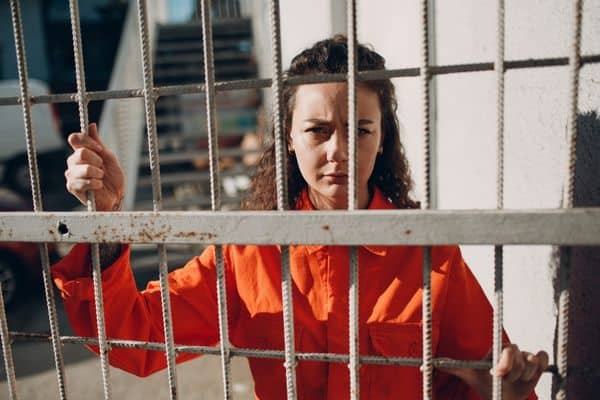If your teen is facing criminal charges in the state of South Carolina, you are likely feeling worried about the future and overwhelmed by the juvenile justice system. Understanding the legal process for juveniles can help reduce stress for you and your family. Here we answer common questions about juvenile arrests in South Carolina. Can a juvenile be arrested? Can a juvenile receive jail time? What are the steps of juvenile court hearings? A dedicated defense attorney can answer any additional questions you may have about if your teenager was charged with a crime in South Carolina.
Can a Juvenile Be Arrested in South Carolina?
Yes and no. The technical language and process around a juvenile arrest are different than the terminology and process of an adult criminal arrest. For legal purposes, a juvenile is a person less than 17 years of age.
An adult who is accused of a crime will be served an arrest warrant and will thereby be "arrested" by law enforcement. A juvenile who is accused of a crime will have a petition filed against them in family court and will be taken into police custody. The petition may be filed by law enforcement, the school, or by the solicitor’s office. Being taken into custody as a juvenile is the equivalent of being arrested as an adult.

Can the Police Question a Child Without the Parents’ Consent in South Carolina?
Yes. In the state of South Carolina, law enforcement has a right to question a child without the presence or consent of their parents. Although the child can be interrogated, they still possess the same rights as an adult at the time of questioning. This means they have the right to remain silent and the right to an attorney. The child may enlist the services of a court-appointed attorney if they cannot afford their own. The police officer must notify the child of these rights upon bringing them into custody, also known as reading their Miranda rights.
Can a Child Go to Jail in South Carolina?
No, a child cannot be sent to jail. Once the child is taken into custody, the arresting officer will decide to either release the child to their parent/ legal guardian or to detain the child. If the child is detained, they will receive a Detention Hearing within 48 hours of being taken into custody. They will be referred to the Department of Juvenile Justice. The DJJ will then secure a detainment location for the child. This could be an approved home, program, or juvenile detention facility. The child will remain there until their adjudicatory hearing.
FAQ: Questions to Ask a Criminal Defense Attorney in South Carolina
What Happens if a Juvenile is Arrested in South Carolina?
If your teen has been taken into custody, it is crucial to secure legal representation as soon as possible. A lawyer should be present at the initial hearing.
After a juvenile is taken into custody, there are a number of different courses of action that can be taken. Firstly, the child may be released to their parents or legal guardian or they may be detained.
If the juvenile is to be detained, they will remain in police custody until their Detention Hearing. At the Detention Hearing, a detainment location will be assigned. They could be assigned to a juvenile detention facility, a foster care home, or put into a diversion program.
The child will then have an intake interview with the DJJ. A DJJ caseworker will interview the child and the child’s guardian. Using findings from the interview, school records, medical records, mental health history, and substance abuse history, the caseworker will make a psychological, social, and educational assessment of the child and their behavior.

After the assessments are complete, the DJJ will make a recommendation to the solicitor’s office. They may recommend prosecuting or dismissing the case. If the case is prosecuted, the juvenile will enter the family court legal process. The juvenile’s attorney will work with law enforcement and the prosecutor to analyze evidence about the case.
Next is the adjudicatory hearing. At the adjudicatory hearing, the defendant will either plead guilty or not guilty. The attorney will attempt to negotiate a plea bargain prior to this hearing if they do not believe they can get the case dismissed. A plea deal will give the child a lesser punishment in exchange for a guilty plea. For example, the lawyer may negotiate community service and guilty pleas instead of time in a juvenile detention center.
Finally, the defendant will attend a Disposition Hearing. At the disposition hearing, the judge will make a final ruling and sentence the juvenile. If found guilty, the child may be sentenced to the appropriate program or facility. Punishments could include community service, probation, a diversion program, a restitution program, a drug-rehabilitation program, or a period of time in a juvenile detention center. If found not guilty, the juvenile is released from the DJJ system.
Can a Juvenile’s Criminal Record be Expunged in South Carolina?
It depends on the crime. A juvenile is eligible for expungement if they were found not guilty or if they were found guilty of a non-violent crime. Persons found guilty of violent crimes are not eligible for expungement in South Carolina. In order to be eligible, the individual must be at least 17 years old, all sentences must be complete and they cannot have any pending criminal charges. A prior conviction of an offense that would be considered a felony offense if committed by an adult may prevent the expungement of future charges.
Contact Our Experienced Criminal Lawyer Today!
Enlisting the services of an experienced juvenile justice attorney is crucial to protecting your teen’s future. At Touma Law Group, we are committed to aggressive defense on behalf of our clients. Our criminal defense attorneys have tried and true strategies to protect your rights and keep your family together. Contact our law office today at [864-618-2323](tel: 864-618-2323) to begin your free consultation.



